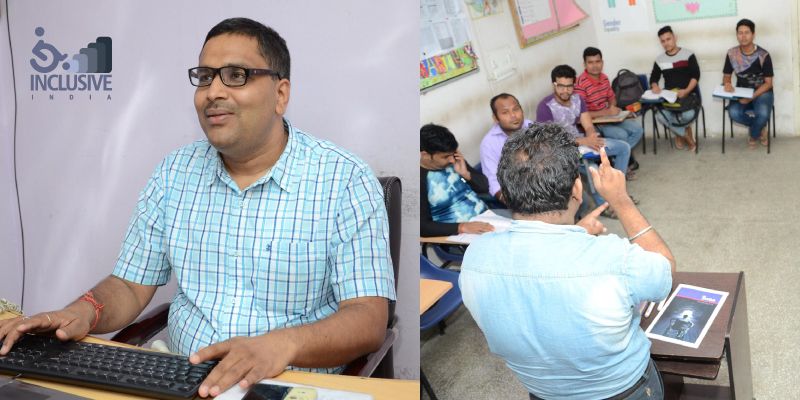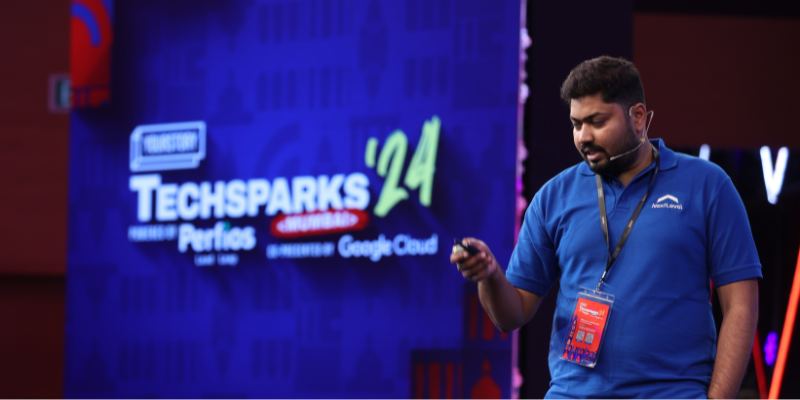The story of a doctor who lost his eyesight; fought back and helped 10,000 people with disability find jobs
Dr Jitender Aggarwal, a dentist who lost his vision due to macular degeneration (a leading cause of severe vision loss) is on a mission to transform the lives of persons with disabilities. Today, his organisation Sarthak Educational Trust has helped close to 10000 people with disability to find jobs in different sectors.

India is home to 2.7 crore people living with one or the other kind of disability. According to the 2011 Census, 2.21 percent of India’s population is differently-abled. Unlike the developed world, India’s disabled are made further socially vulnerable due to lack of quality education, lack of women’s safety, and attitudinal barriers as they continue to grapple with the challenges of access, acceptance, and inclusion.
However, in a not so disabled-friendly country like India, there are champions of change who have defied all odds and turned their physical disability into their greatest strength. Prominent oncologist Suresh Advani (recipient of Padma Shri and the Padma Bhushan), music director Ravindra Jain, the first woman amputee to climb Mount Everest Arunima Sinha are some among many who taught us that a strong will and determination is all that you need to change your dreams into reality.
One such achiever is Jitender Aggarwal, who is also being hailed as a messiah by the disabled community. His organisation Sarthak Educational Trust is a holistic platform for providing skills and empowering disabled persons and has so far placed nearly 10000 disabled candidates in various sectors including retail, BPOs, IT and hospitality, through its 13 skill development centres present across India.
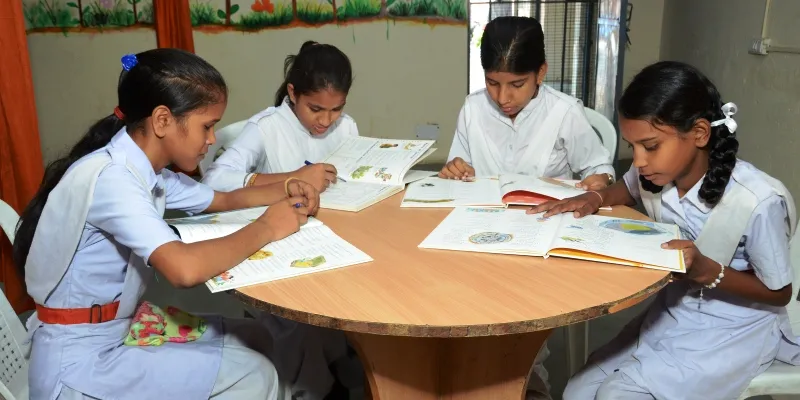
The journey so far
In 2004, Dr Jitender Aggarwal, who was a practising dental surgeon lost his vision due to macular degeneration of retina. For four years, the doctor fought with the anguish that people with disabilities face on a daily basis. “Non-inclusive environment and limited access to resources were some of the biggest constraints and the fact that I had to depend on someone was negatively impacting me in a big way,” he points out.
Instead of submitting his fate to the generosity of people, Jitender decided to take charge to help himself and millions in the same situation. He first got himself trained in screen readers and other software to manage and execute his daily activities through computers.
After equipping himself he embarked on his journey to empower and create an inclusive world for people with disabilities. In 2008, he gave wings to his dream with the first Sarthak Centre in Delhi, which aimed at providing skills and employing visually impaired candidates in the field of medical transcription.
“During the period 2004-2007, it was like roaming in the dark as I did not know what PwD in India faced. I researched and found that the disabled are treated with charity and not with economic empowerment. That provided me an impetus to start Sarthak and help the disabled live with integrity,” reveals Jitender Aggarwal, Founder of Sarthak Educational Trust.
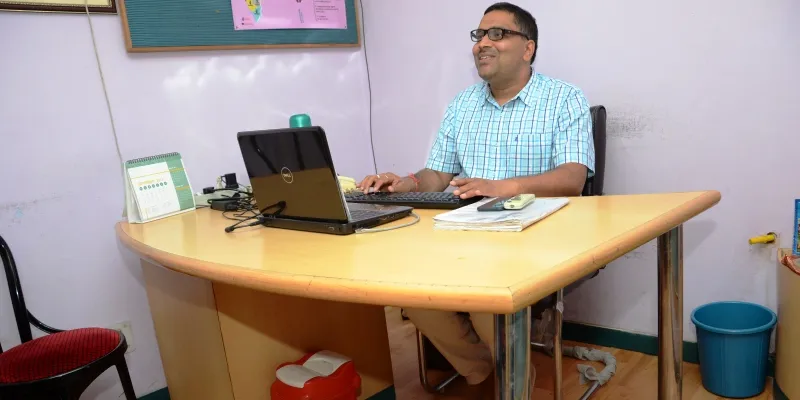
Helping people with disabilities
Focusing on holistic development of PwD (persons with disability), the organisation follows four models of training - basic training programme, employability training programme, corporate linked training programme and medical transcriptions.
In basic training programme, candidates between the ages of 18 and 30 years are enrolled in a three-month training programme, which covers basic life skills. After completion of the course, the successful candidates are assessed and certified. The corporate training programme, which lasts for about 15 days aims to enhance the professional growth of differently-abled candidates and under this programme, candidates are provided on-the-job training.
The employability training programme, designed for candidates between 18 and 30 years, focuses on employability enhancement and employment generation of the trainees. The duration of this programme varies from 60 days to 90 days and is divided into two phases. Phase one refers to foundation course, wherein, individual is provided with basic understanding of computer skills, English, and soft skills. In the second phase, trade specific training is provided to the trainees in the area of retail, BPO, IT and hospitality.
Though the core focus of the organisation is on skill development and employment of the differently-abled, it is also working in other areas like early intervention (helps in identifying and preventing disability at early stages in young ones), inclusive education (working towards inclusive education by checking school drop-outs and inclusion of disabled students.), advocacy initiatives (creating sensitisation about the capability of differently abled candidates among corporates), NGO capacity building (conducting workshops for NGOs working to help persons with disability) and accessible event management support (helping corporates host barrier free events for disabled audience).
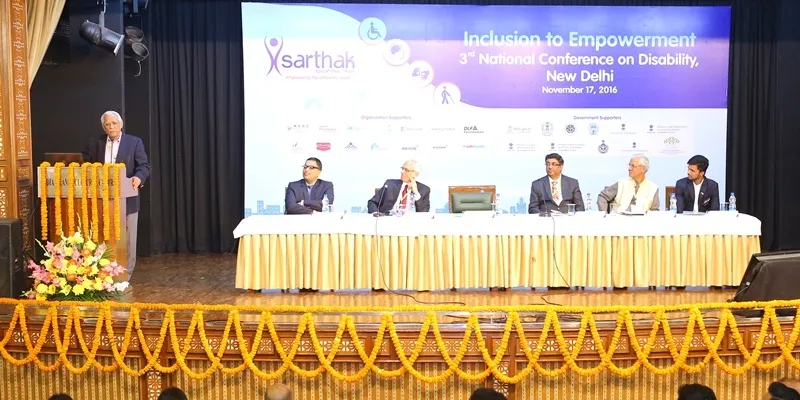
How can India become more disabled-friendly?
Last year, the Lok Sabha passed the Rights of Persons with Disabilities Bill 2016, which replaced the existing PwD Act, 1995 enacted 21 years ago. According to the latest bill, the types of disabilities included in the bill have been increased from 7 to 21.
In a developing country like India, the road to accessibility is a long, winding one. As the Director of the National Centre for Promotion of Employment for Disabled People (NCPEDP), Javed Abidi correctly pointed out,
“Just one in 250 hotel rooms in India are accessible to the disabled whereas globally the ratio is 1:50.”
However, in 2015 the government embarked on its journey to make India disabled-friendly, launched a nation-wide campaign for achieving universal accessibility for Persons with Disabilities (PwDs) - Accessible India Campaign.
Jitender feels that a lot more needs to be done in making the community feel secure in the society.
“Firstly, counting of people with disabilities must be done again by the government as the number of disabilities have been increased to 21 last year. Initially the PwD population was close to three percent but now people are expecting it to be more than 10 percent. Secondly, the most important thing required to empower the community is accessibility,” adds Jitender.
Other initiatives
Apart from the various initiatives aimed at building an inclusive platform for the disabled community, Sarthak also conducts the National Conference on Disability every year. This year, the 4th National Conference will be held on November 9, 2017 at AICTE, New Delhi and aims to bring together powerful voices including stakeholders from government, corporate, civil societies, media, and PwD to brainstorm and discuss various pressing needs of the disability sector.
Last year, the conference created a significant buzz and was attended by around 300 policy makers, planners, innovators, and implementers.
Plans to go global
Jitender believes that disabilities affect people across globe and Sarthak, which has already transformed thousands of lives in India, soon aims to positively impact the disabled communities in neighbouring countries like Sri Lanka, Bhutan and many more.






